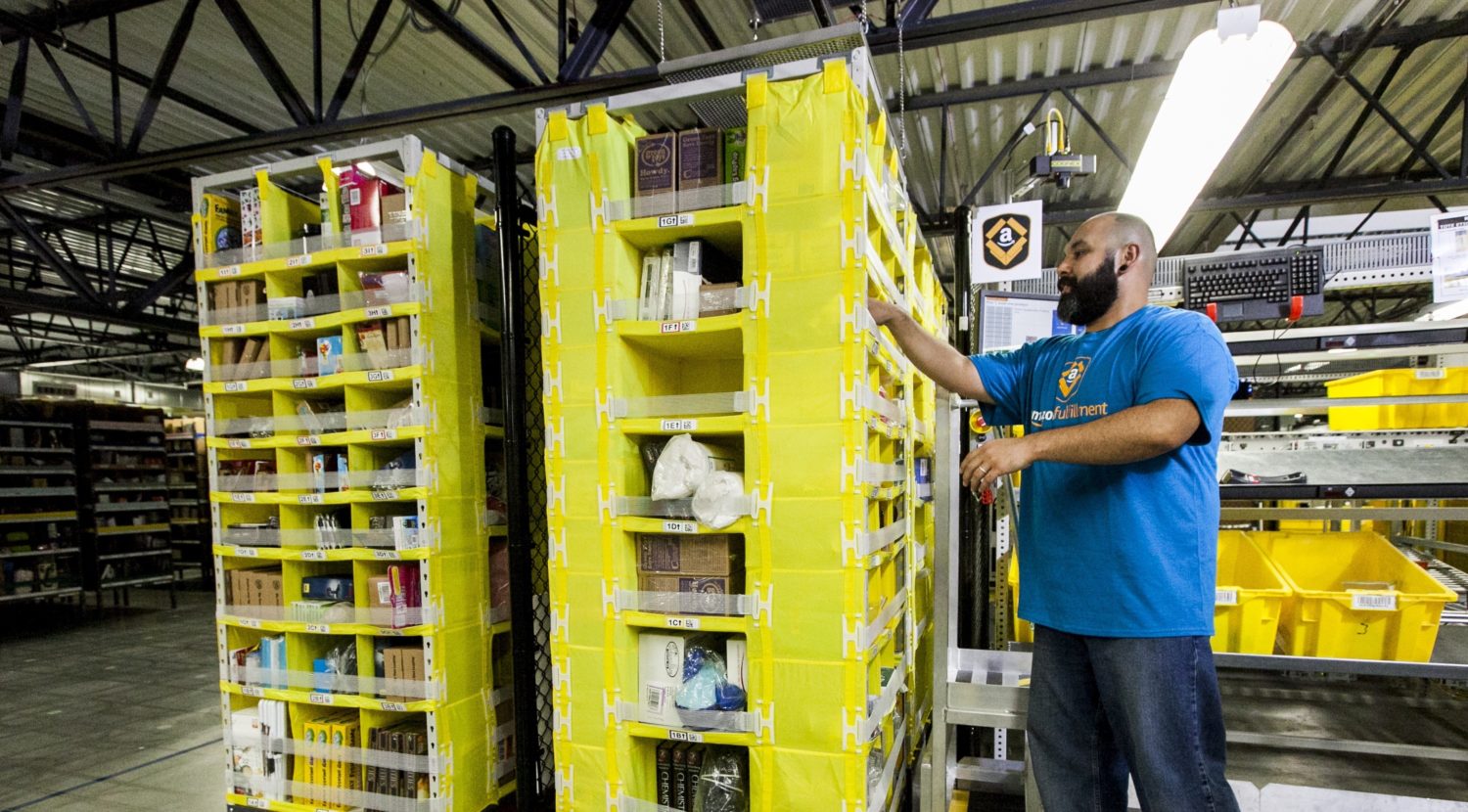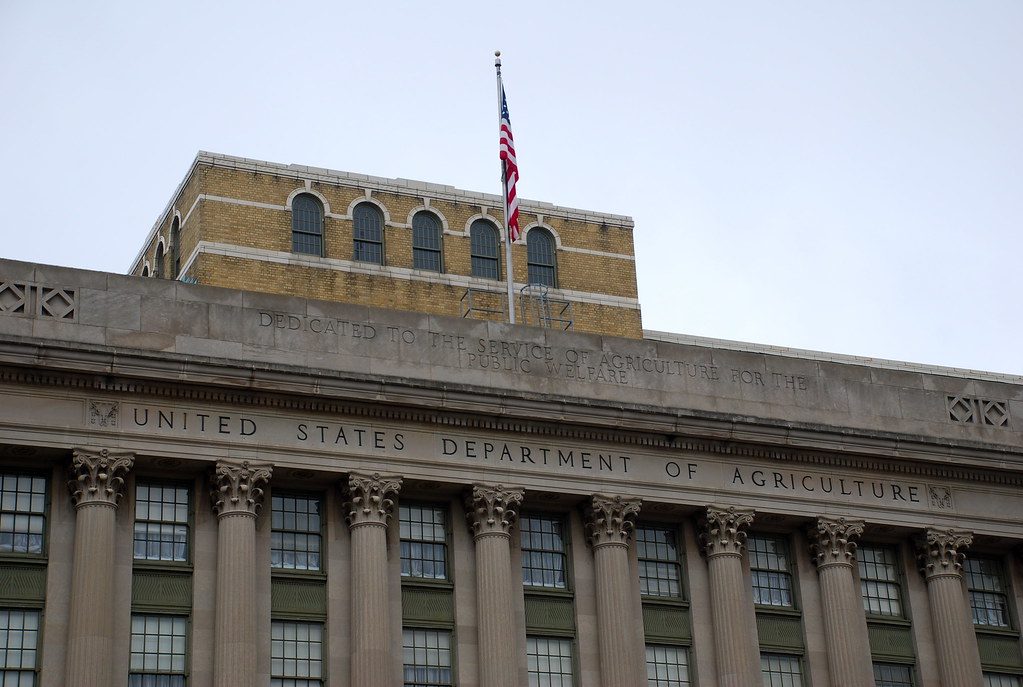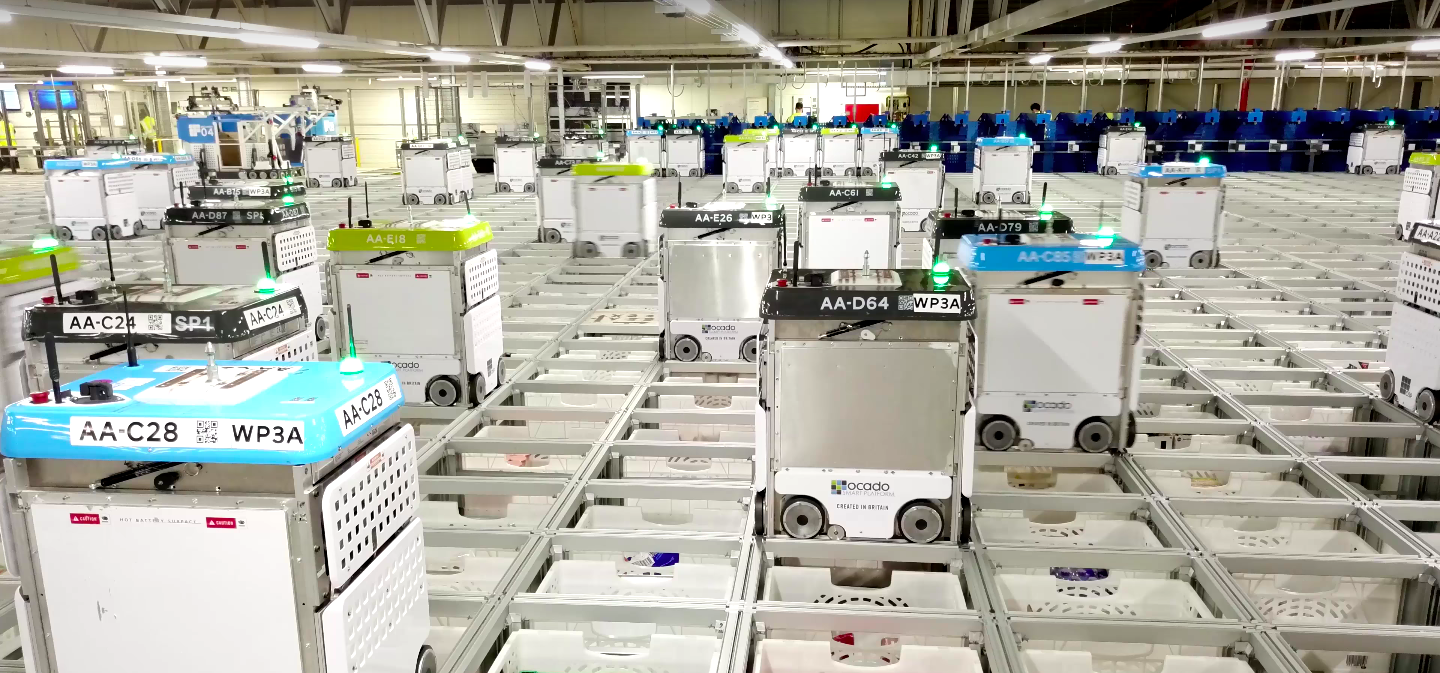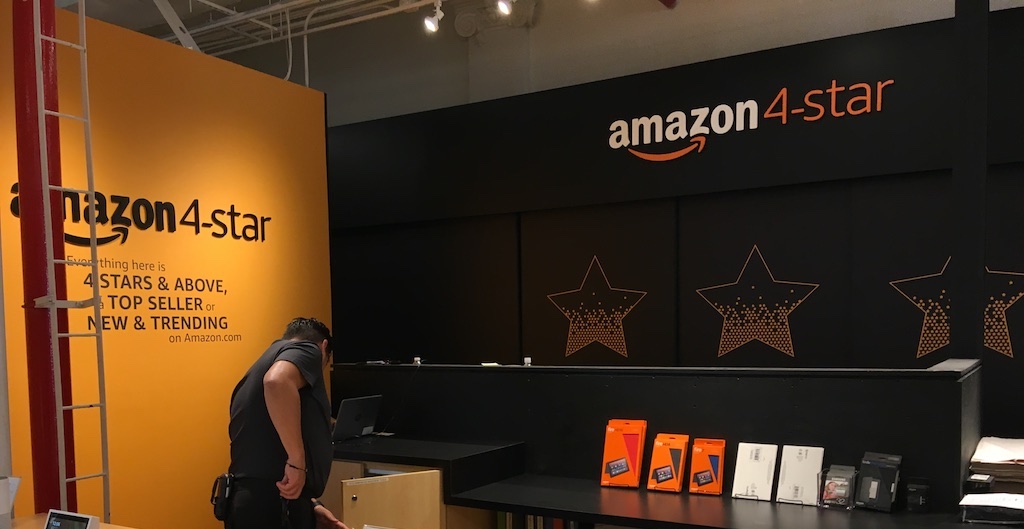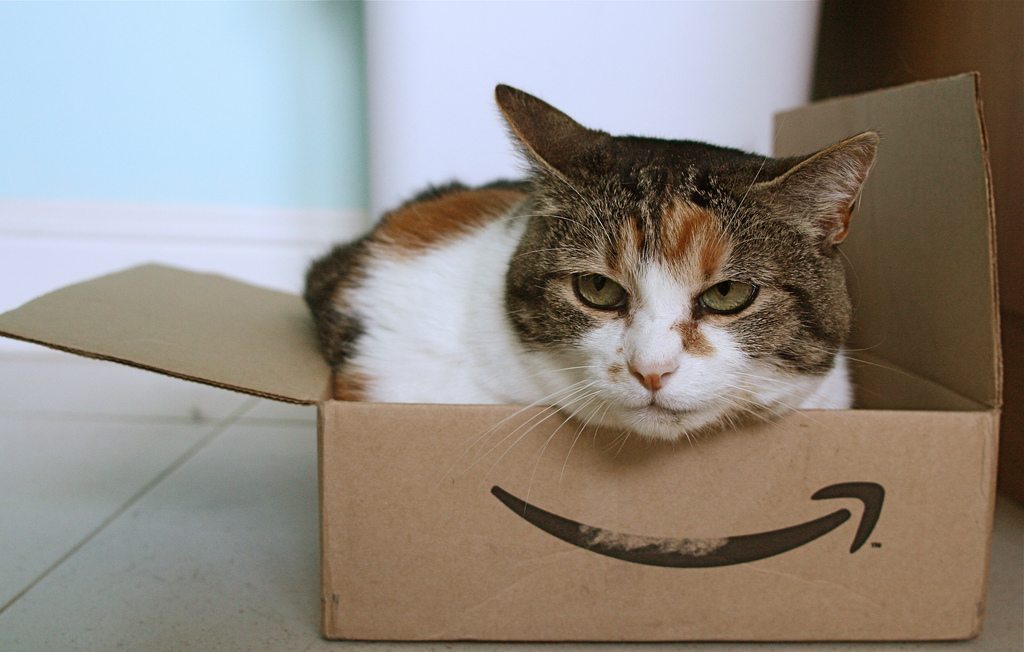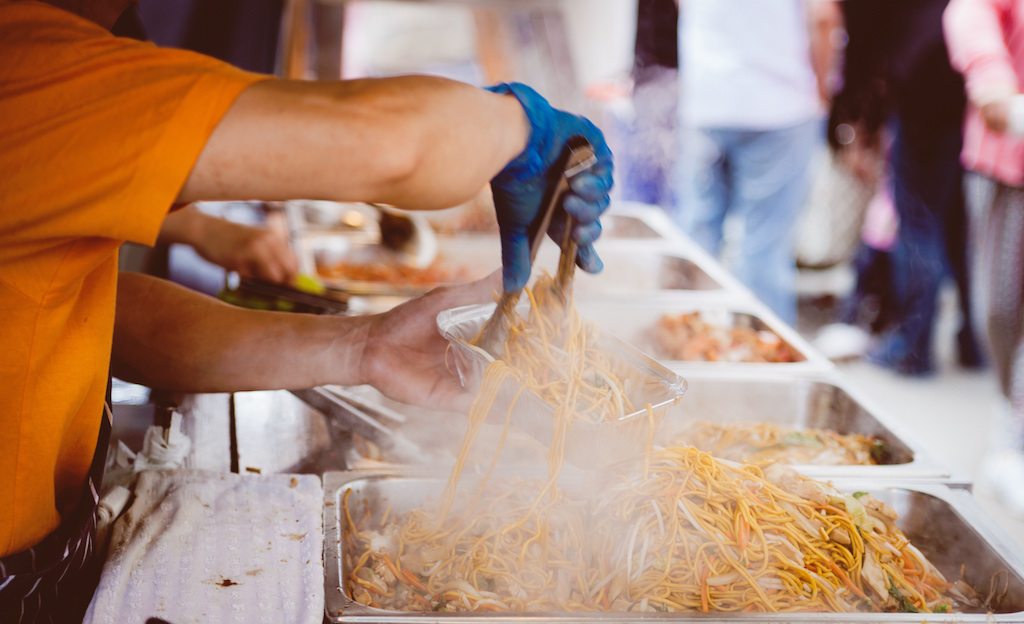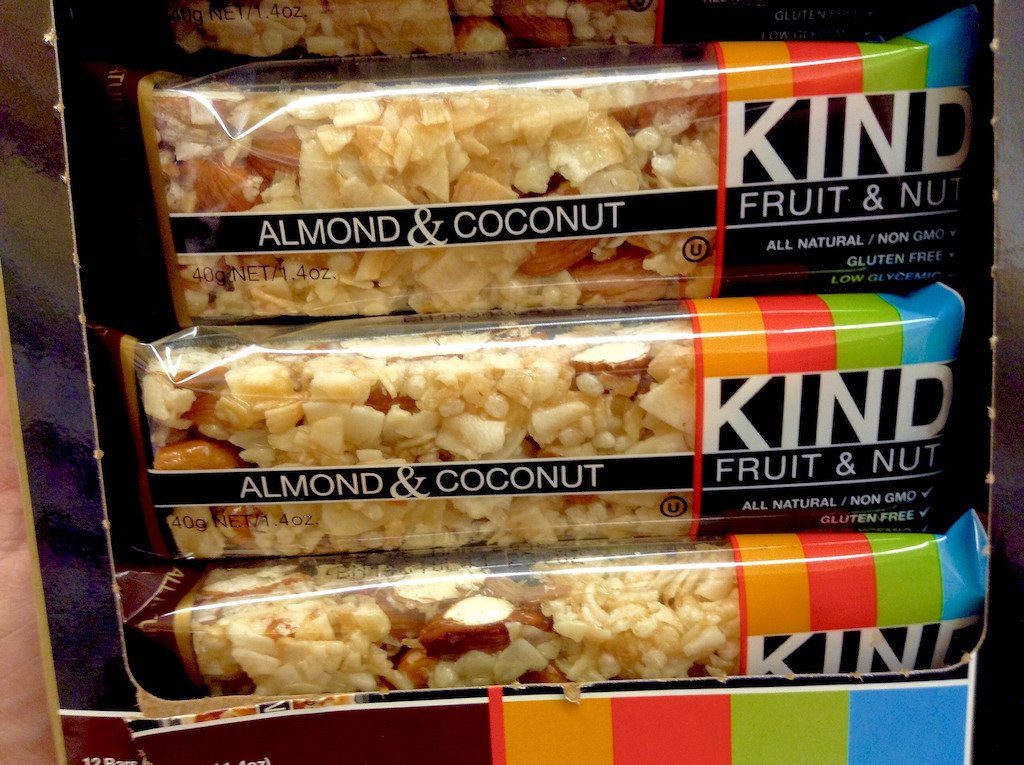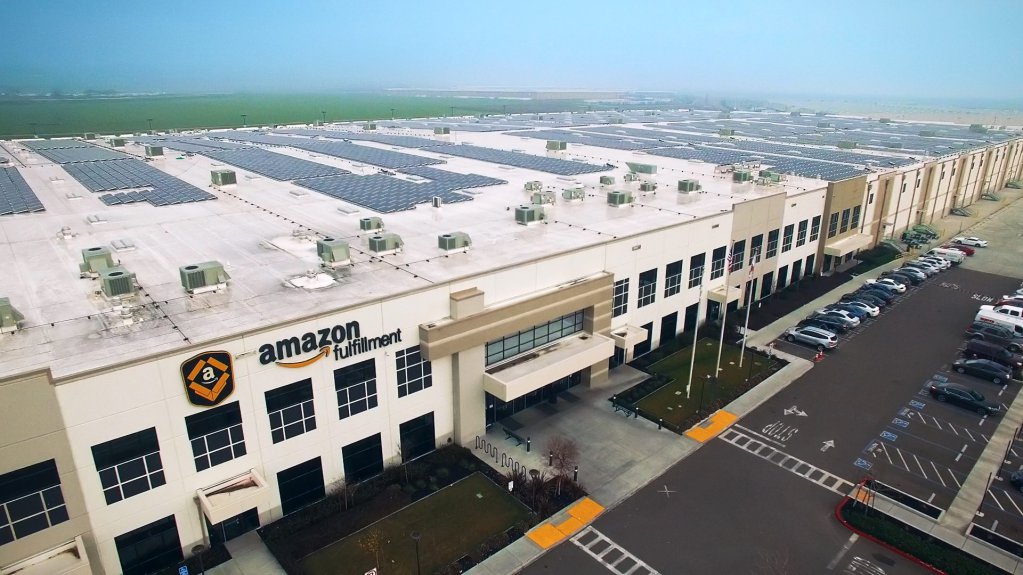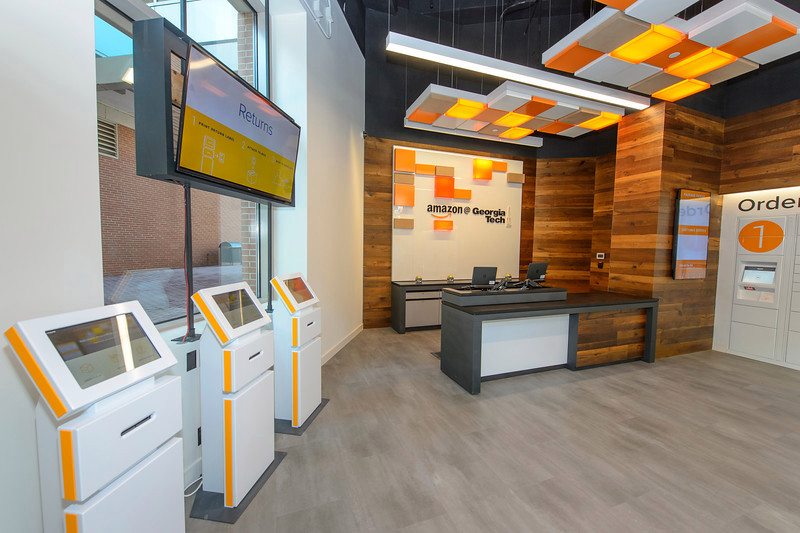
Amazon
Amazon on Tuesday rolled out the latest weapon in its world-domination war: Amazon Instant Pickup, a high-tech take on the local corner store, debuting in college towns this week. Instant Pickup allows the online retailer to shave its famous two-day shipping time down to a matter of minutes. How? Simply plug your items into the Amazon app, and within moments a genuine human staffer will place it in a locker you can open with your phone.
The offerings are limited to the kind of sundries you might find at a bodega: “food, cold drinks, personal care items, [and] technology essentials,” the company says, in a press release. Oh, and the odd Echo or Kindle Fire. Conveniently, Amazon’s line of home and personal devices will also be available for sale.
The company already staffs pickup points “on or near” 22 college campuses nationwide, but those have been limited to standard, snail-mail shipping speeds for now. As of today’s announcement, Amazon is piloting Instant Pickup at five locations, including at the University of California, Berkeley, and Atlanta’s Georgia Tech.
“As shopping behaviors continue to evolve, customers consistently tell us that they want items even faster,” says Ripley MacDonald, Amazon’s director of student programs, in the release. “Whether it’s a snack on-the-go, replacing a lost phone charger in the middle of a hectic day or adding Alexa to your life with an Echo, Instant Pickup saves Prime members time.”
That’s right, there’s a catch: Instant Pickup ordering is only available to those willing to pay an annual fee for the company’s Prime membership.
Amazon did not respond to requests for comment by press time. (While trying to find a way to reach MacDonald we discovered he has the world’s worst Twitter presence, for what it’s worth: A single tweet links to a HuffPo story titled “Is Amazon Reinventing Retail for the 21st Century?”, as if that was the only thing of value that had ever been said.)
To hear MacDonald tell it, Amazon is offering something new and quasi-miraculous: the ability to want something and get it, boom, right now. And it’s true that Amazon hasn’t been able to offer that in the past. Even it’s zippiest, same-day shipping options usually take one to two hours.
The official narrative seems to be that even dramatically cut traditional wait times aren’t going to cut it for Millennials, whose minds have been addled by instant gratification. Reuters’ take on the story is that Instant Pickup allows Amazon to enter the “impulse buy” market, a chance to branch out from the price-sensitive, utilitarian goods we’re willing to wait for—diapers, razor blades, James Patterson novels—and into the more emotionally fraught domain of things we crave in the now.
“I want to buy a can of coke because I’m thirsty,” MacDonald tells Reuters. “There’s no chance I’m going to order that on Amazon.com and wait however long it’s going to take for that to ship to me.”
That actually sounds pretty great: to order a Coke on your phone, then be drinking it seconds later. But when framed this way, it’s easy to forget the obvious. We already have two-minute shipping, and we’ve had it a long, long time.
It’s called a vending machine.
Yes, Instant Pickup has all the trappings of “disruptive” tech: mobile-enabled ordering, next-generation storefronts, a whiff of novelty. But in the end, it’s not so different from the cumbersome, old-school machines that loom in break rooms and campuses everywhere: with some petty cash and a few quick swipes, you earn access to a stripped down, limited inventory of snack foods and bare necessities. Only breathless, tech-industry rhetoric makes this sound genuinely new.
And Amazon’s new pickup points are actually worse than vending machines in one measurable way: Remember, you have to be an Amazon Prime member to actually use them. Which is especially troubling when you consider that the initiative is being piloted on college campuses. By teaming up with Amazon, the University of California, Berkeley might gain a new, semi-autonomous convenience store with Silicon Valley cache. But what it gains in convenience, it loses in inclusivity. What happens to the students who don’t want—or can’t afford—to pony up $50 just to use the new amenity in their dorm?
Which brings us to the heart of this matter. As it stands now, Instant Pickup is not especially groundbreaking. Nor is it especially convenient. It’s one of the tech world’s best tricks: to make something old look new again. (Remember when some programmers reinvented Slim-Fast and called it Soylent?) And it’s a piece of brilliant marketing: a way to lure colleges in with the promise of streamlined conveniences operations, and in return lure in a new generation of users. Not just users, beta testers. Because the data alone—on what college kids buy, and how much—will be valuable, even if the company loses money on the stores.
For Amazon, it’s all part of the same old playbook. You know, the thing it did with the book industry, and then with grocery stores: Find a vulnerable industry, then lowball prices and edge out the competition. Amazon, after all, is not winning on so many fronts just because Jeff Bezos is brilliant. It’s winning because the company benefits from a weaponized double standard. Since Amazon’s Wall Street investors believe it’s in for the long haul, it can afford to lose money quarter after quarter. It’s notorious for telling investors, hey, we’re losing money but we’re gaining market share. In other words, it’s a bet that Amazon will make good in the future when, well, it owns everything.
Instant Pickup is just the latest example of the company plotting a takeover of another old-world industry. In that regard, it isn’t so much about consumer convenience. It’s about the convenience Amazon has that others—booksellers, grocers, bodega owners, even vending machine lessees—simply don’t: The old school guys still have to balance their checkbooks.


